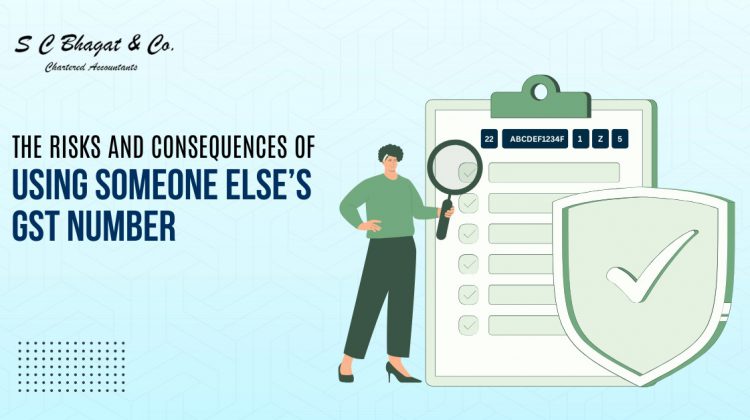In the realm of taxation and business compliance, the Goods and Services Tax (GST) system stands as a pivotal framework ensuring streamlined tax processes in many countries, including India. Central to this system is the GST Identification Number (GSTIN), a unique 15-digit code assigned to every registered taxpayer. This number is essential for various operations such as filing returns, claiming input tax credits, and issuing tax invoices. However, the misuse of someone else’s GST number, whether intentional or accidental, can lead to severe legal and ethical repercussions.
Understanding the GST Number
A GST number is structured as follows:
- First two digits: State code as per the Indian Census 2011.
- Next ten digits: Permanent Account Number (PAN) of the business or individual.
- Thirteenth digit: Entity code reflecting the number of registrations within a state.
- Fourteenth digit: By default, the letter ‘Z’.
- Fifteenth digit: Check code used for error detection.
This unique identifier ensures that every taxable entity is distinctly recognized under the GST regime, facilitating transparent and efficient tax administration.
Legal Implications of Misusing a GST Number
Using someone else’s GST number is a direct violation of GST laws and is considered a fraudulent activity. The legal consequences of such actions include:
- Financial Penalties: Offenders may face substantial fines. For instance, under Section 122 of the CGST Act, any taxable person who supplies goods or services without proper registration is liable to a penalty of ₹10,000 or an amount equivalent to the tax evaded, whichever is higher.
- Criminal Charges: Severe cases can lead to imprisonment. Section 132 of the CGST Act stipulates that issuance of invoices without the supply of goods or services, leading to wrongful input tax credit, can result in imprisonment ranging from one to five years, depending on the amount of tax evaded.
- Denial of Input Tax Credit (ITC): Businesses claiming ITC using another entity’s GST number risk having their credits denied, leading to increased tax liabilities.
- Business Disruptions: Engaging in such fraudulent practices can trigger audits and investigations, causing operational disruptions and reputational harm.
Ethical Considerations
Beyond legal ramifications, using someone else’s GST number undermines ethical business practices:
- Erosion of Trust: Stakeholders, including customers, suppliers, and regulatory bodies, may lose trust in a business that engages in dishonest practices.
- Unfair Competitive Advantage: Such actions can provide an unjust advantage over competitors who adhere to legal and ethical standards.
- Internal Complications: Employees may feel demoralized or pressured if they are aware of or asked to participate in unethical practices, leading to a toxic work environment.
Real-World Scenarios and Case Studies
Instances of GST number misuse have surfaced, highlighting the gravity of the issue:
- Identity Theft: Fraudsters have been known to use legitimate businesses’ GST numbers to conduct unauthorized transactions, leading to legal troubles for the unsuspecting victims.
- Fake Invoicing: Some entities issue invoices using another business’s GST number to claim undue tax credits, a practice that has been on the radar of tax authorities.
- Case in Point: In a notable case, a company faced penalties and legal action after it was discovered that they had used another firm’s GST number to evade taxes, leading to a crackdown by tax authorities.
Preventive Measures
To safeguard against the risks associated with GST number misuse:
- Strict Internal Controls: Implement robust accounting systems that ensure GST numbers are used correctly and verified regularly.
- Regular Training: Educate employees about the importance of GST compliance and the consequences of fraudulent activities.
- Vendor Verification: Before entering into business transactions, verify the GST numbers of vendors and partners to ensure their legitimacy.
- Use of Technology: Leverage software solutions that can detect discrepancies in GST-related transactions, providing an added layer of security.
Conclusion
The misuse of someone else’s GST number is a serious offense with far-reaching legal and ethical consequences. Businesses must prioritize compliance, uphold ethical standards, and implement preventive measures to ensure they operate within the bounds of the law. By doing so, they not only avoid potential penalties but also build a reputation of integrity and trustworthiness in the marketplace.
FAQs
- Can I use a friend’s GST number for my business transactions?
No, using someone else’s GST number for your transactions is illegal and can lead to severe penalties, including fines and imprisonment.
- What should I do if I discover someone is using my GST number fraudulently?
Immediately report the misuse to tax authorities and file a complaint to prevent any liabilities arising from fraudulent activities.
- How can I verify the authenticity of a GST number?
You can use the GST portal’s search functionality to verify the validity of a GST number before engaging in business transactions.
- What are the penalties for GST fraud in India?
Penalties can range from hefty fines to imprisonment, depending on the severity of the offense.
- Is it mandatory for all businesses to have a GST number?
Businesses exceeding the prescribed turnover threshold or engaged in specific activities are required to register for GST and obtain a GSTIN.

